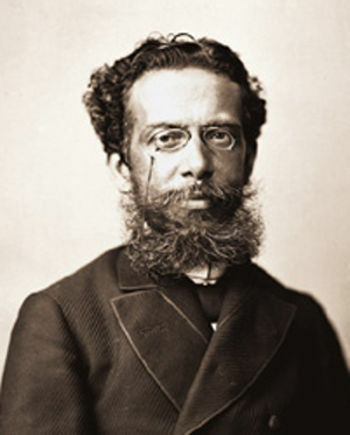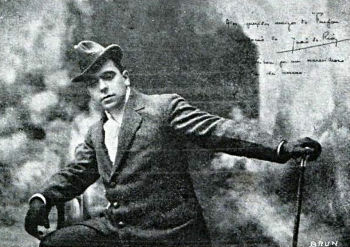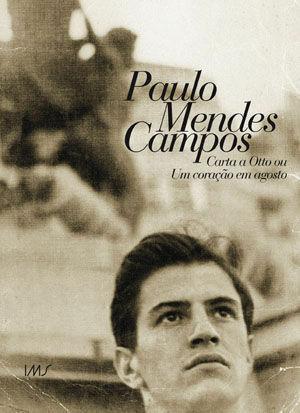The etymology of the word chronic comes from the Greek chronos, which means time. As defined by the Houaiss Dictionary of the Portuguese Language, the chronicle is
(...) compilation of historical facts presented according to the order of succession in time, a brief literary text, usually narrative, with almost always little plot defined and motives, for the most part, extracted from the immediate daily life, a fictional prose, an account with characters and encouraged circumstances, evolving over time (...). It currently covers social and mundane news. Originally the chronicle was limited to true and noble accounts; however, great writers from the 19th century onwards began to cultivate it, reflecting, with shrewdness and opportunism, social life, politics, customs, daily life, etc., from his time in books, newspapers and serials. (HOUAISS; VILLAR, 2001, p. 877)
A very popular textual genre and essentially made to be published in printed newspapers, the chronicle underwent numerous changes over time. From the 19th century onwards, it began to show literary characteristics, thus acquiring the
status of autonomous gender. Although it has assumed remarkable attributes of literature, the chronicle has never abandoned its imprint journalistic, although it does not have the obligation to inform, nor to inform accurately, task of journalism.In Brazil, writers such as Machado de Assis, Carlos Drummond de Andrade, Paulo Mendes Campos, among others, helped to disseminate this interesting genre that transits naturally between journalism and literature and is usually loaded with irony and humor when reporting social, political or cultural. In order for you to know a little more about the authors who dedicated themselves to the dissemination and consolidation of the genre in the country, Brasil Escola presents for you the five most important chroniclers of Brazilian literature. Good reading!
Machado de Assis

Machado de Assis was born in Rio de Janeiro on June 21, 1839. He also died in Rio de Janeiro, on September 29, 1908, aged 69
Master of masters, Machado de Assis he wasn't just genius as a novelist. The fine irony of “Bruxo do Cosme Velho” also gained space in his chronicles, which, influenced by literature realist – to which the writer was associated – presented an interesting picture of Rio de Janeiro society at the beginning of the 20th century. Although he was considered – unfairly – as an alienated writer, Machado de Assis turned the chronicle into an instrument to denounce the social ills of his time, including slavery.
Lima Barreto

Lima Barreto was born in Rio de Janeiro, on May 13, 1881. He died on November 1, 1922, aged 41
Lima Barreto he was certainly the most underrated writer of his time. The importance of his work was recognized belatedly, when it was finally revealed to the public to genius of one of the most important chroniclers of Brazilian literature at the beginning of the century XX. Considered against Machado de Assis, a writer who, in his opinion, produced alienated literature suitable for young women, Lima Barreto was a chronicler of acute critical sense, a characteristic that earned him the label of author pamphleteer. The charge made by the literary critics of the time, of course, is unfounded. History tried to disprove it.
João do Rio

João do Rio was born on August 5, 1881, in Rio de Janeiro. He died in the same city on June 23, 1921
João do Rio was one of the pseudonyms of João Paulo Emílio Cristóvão dos Santos Coelho Barreto. A journalist, he was also a writer and precursor of the modern social chronicle. His chronicles portrayed the city of Rio de Janeiro in the early 20th century and investigated the life of the marginalized and forgotten under a both realistic and lyrical perspective, characteristics that made him one of the greatest chroniclers Brazilians.
Paulo Mendes Campos

Book cover Letter to Otto or a Heart in August, by Paulo Mendes Campos. Instituto Moreira Salles *
In the chronicle of Paulo Mendes Campos, we can observe the symbiosis between journalism and literature. He was considered by many scholars as the best chronicler of his time, an epithet that gains greater importance when you have Carlos Drummond de Andrade, Manuel Bandeira, Rubem Braga and Fernando Sabino among your contemporaries. His texts, although the chronicle is an object of the context in which it is inserted, have not been dated, they resist time and offer readers exact doses of lyricism.
Carlos Drummond de Andrade

Carlos Drummond de Andrade was born in Itabira, Minas Gerais, on October 31, 1902. He died in Rio de Janeiro, on August 17, 1987 **
Although he was consecrated as a poet and received the epigraph of the greatest Brazilian poet of the 20th century, Carlos Drummond de Andrade he set aside time for the office of chronicler, an activity he performed with mastery. For fifteen years, the writer published his chronicles in Jornal do Brasil three times a week, totaling an extraordinary number of 2300 texts – approximately. The vast literary production in the genre was marked by the dialogism between literature and journalism, as well as, of course, by the poet's unmistakable lyricism.
*The image of Paulo Mendes Campos was taken from the cover of the book Letter to Otto or a Heart in August, by Paulo Mendes Campos. Publication of the Moreira Salles Institute.
** Drummond's image is on the cover of the journal 'Cadernos de Literatura Brasileira', by Instituto Moreira Salles.
By Luana Castro
Graduated in Letters
Source: Brazil School - https://brasilescola.uol.com.br/literatura/os-cinco-cronistas-mais-importantes-literatura-brasileira.htm

